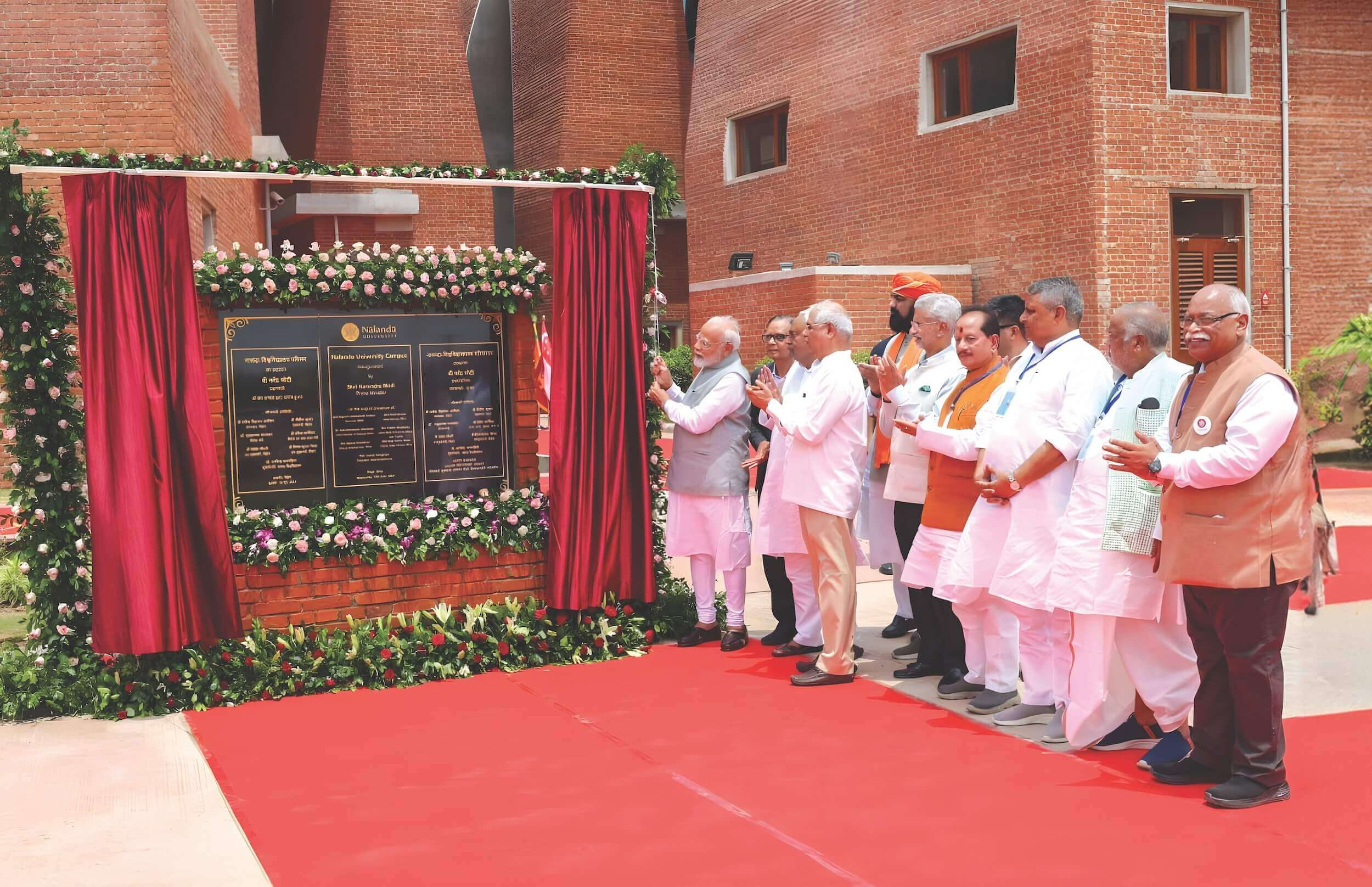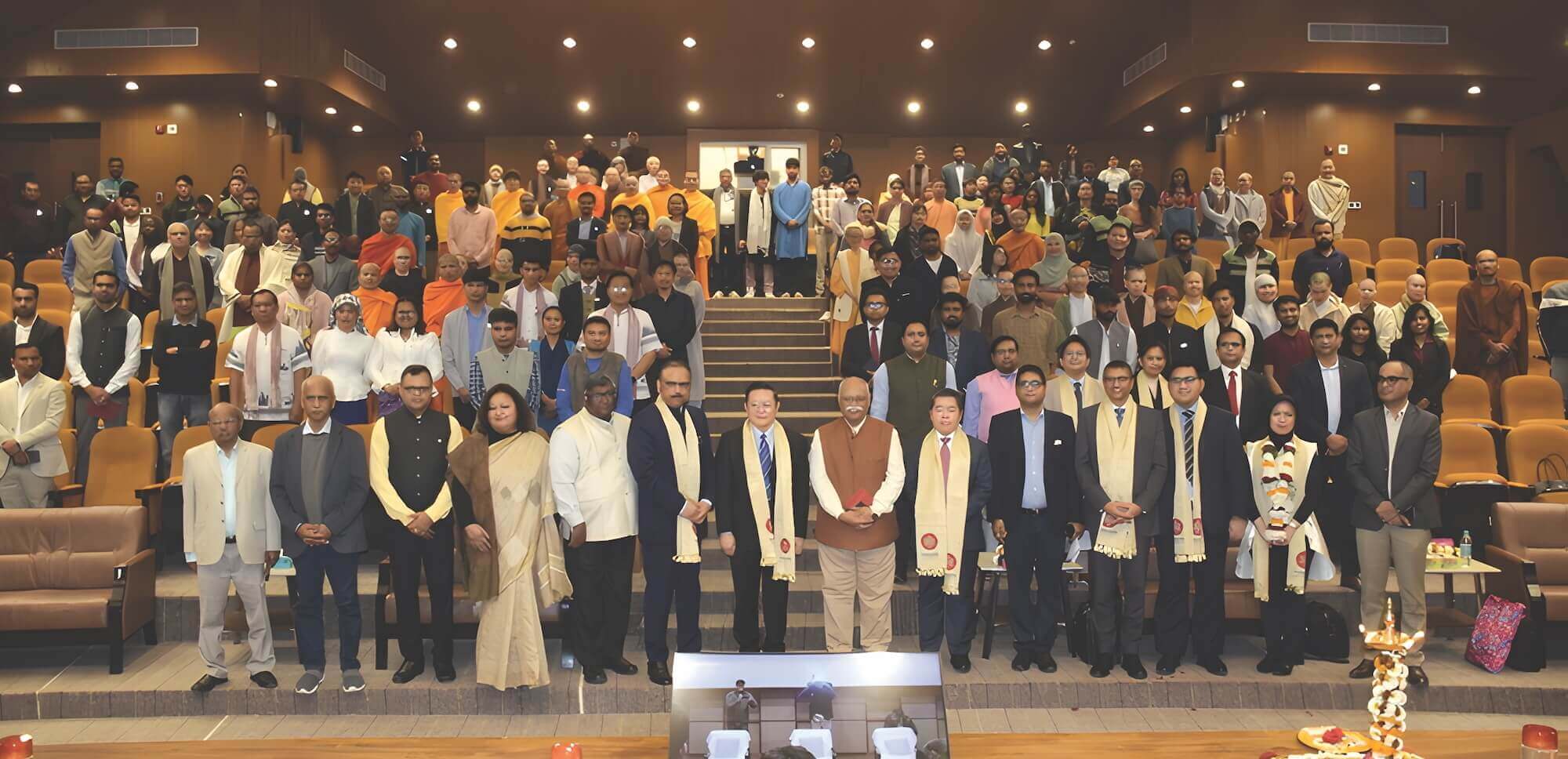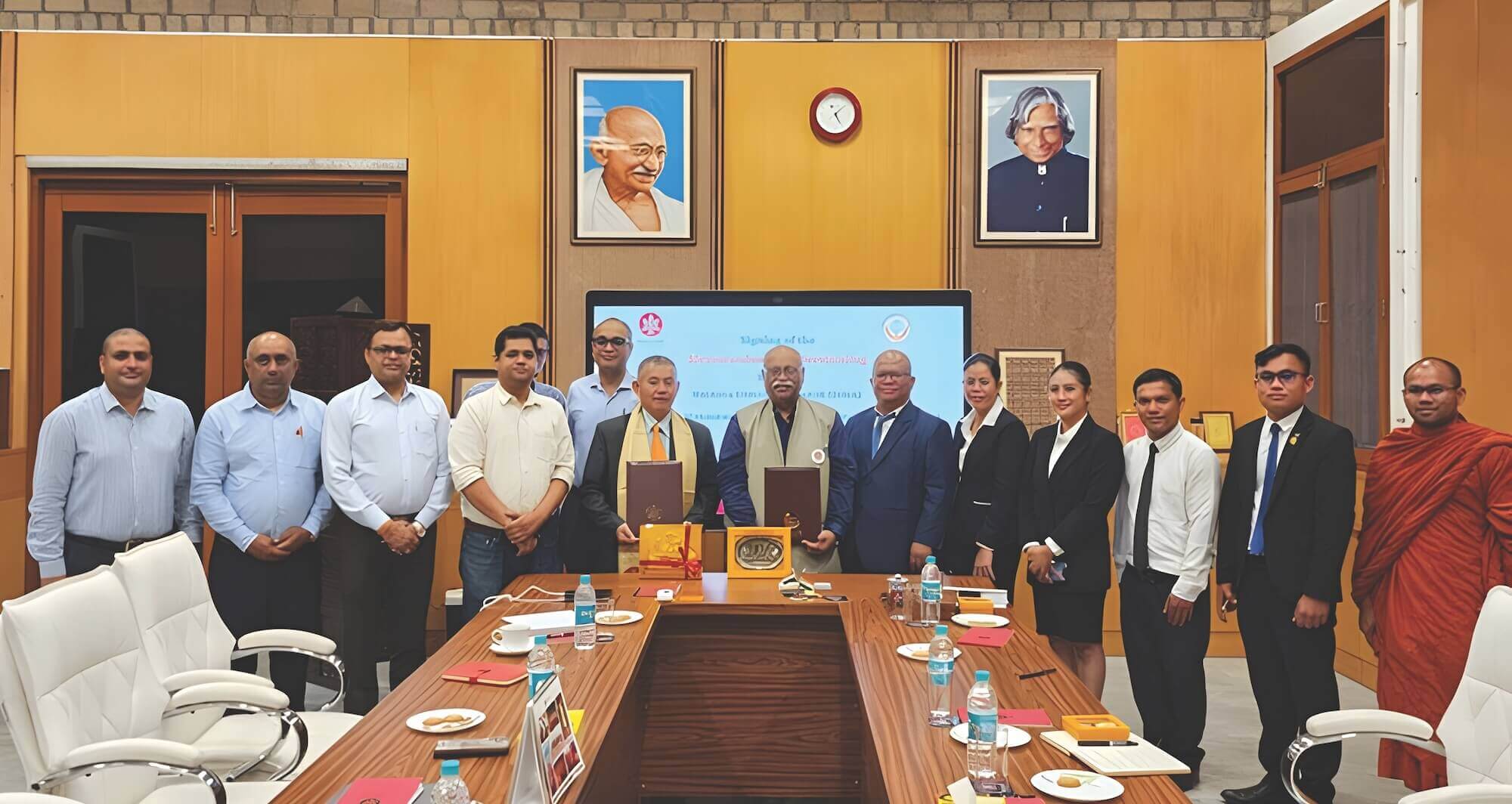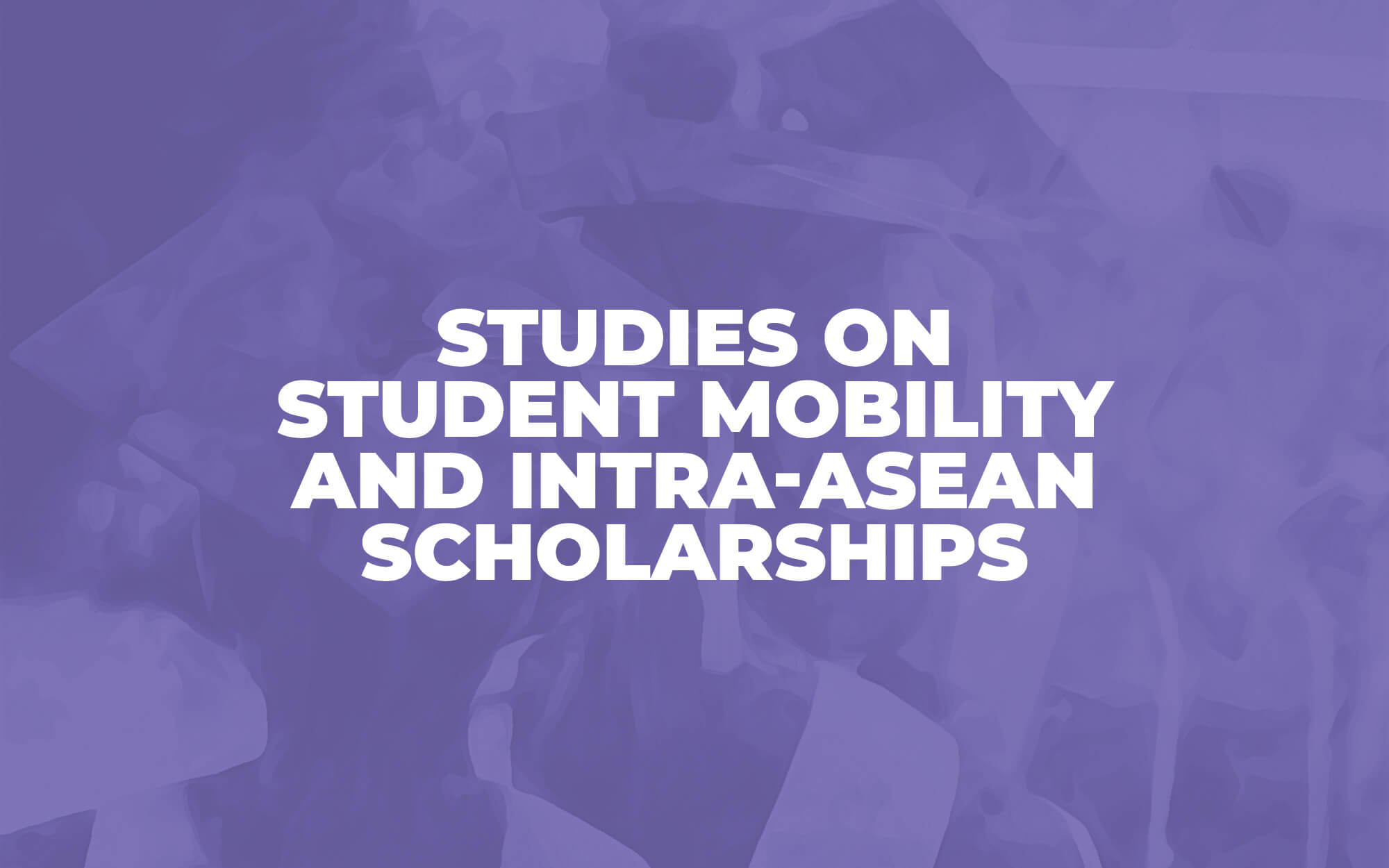



India’s education system, rooted in rich traditions and values, is a testament to the nation’s commitment to nurturing intellectual growth and innovation. It is known for its rigorous curriculum, which emphasises discipline and hard work. India's education system accommodates a diverse range of learners from various cultural, linguistic, and socioeconomic backgrounds. This inclusivity fosters a rich learning environment where students can interact with peers from different walks of life, promoting cultural understanding and tolerance.
India is home to prestigious higher education institutions like the Indian Institutes of Technology (IITs), Indian Institutes of Management (IIMs), and top-tier universities. These institutions provide world-class education and research opportunities. Graduates from these institutions are highly sought after in the global job market for their strong academic background, technical and managerial skills, and adaptability.
India’s historical ties with Southeast Asia date back for centuries, and are characterised by maritime trade, cultural exchanges, and intellectual dialogue. Today, this historical connection is a foundation for strengthening educational cooperation between India and ASEAN Member States. Under the ASEAN-India Framework, India offers a number of scholarships to students from ASEAN Member States in the Nalanda University for pursuing Masters, PhD and PG Diploma programmes.
New Nalanda University: Bridging the past and future
In the heart of the historical town of Rajgir-Bihar, India, stands a modern marvel of education and cultural confluence: the New Nalanda University. This institution is more than just a university; it is a reincarnation of the ancient Nalanda University, once a global epicentre of learning and intellectual exchange. Ancient Nalanda, founded in the 5th century CE, was an illustrious centre of learning, attracting scholars from across Asia, including South Asia, Southeast Asia and East Asia. It was not merely an educational institution but a thriving hub of intellectual and cultural exchange. Subjects ranged from Buddhist studies, fine arts, medicine, mathematics, astronomy, and politics to the study of scriptures and philosophies.
Today, the reincarnated Nalanda University aims to create a new knowledge ecosystem that embodies these ancient ideals, offering universal solutions for a sustainable future. This vision gained significant momentum with the endorsement of leaders at the East Asia Summit in 2007, reaffirming Nalanda’s role in revitalising knowledge networks and promoting peace within the ASEAN region.
On 19 June 2024, the Hon’ble Prime Minister of India, Shri Narendra Modi, inaugurated the new Campus of Nalanda University. This large, carbon-footprint-free, net-zero campus, sprawling over acres of greens and 100 acres of water bodies, is truly an abode for learning.
The academic framework at Nalanda University is distinctively ASEAN-oriented, with courses that emphasise regional culture, history, and sustainability. The curriculum includes unique offerings such as Maritime Interconnections in the Indian Ocean, Ramayana Traditions in Southeast Asia, Sustainable Asian Cities, Writings from Southeast Asia Culture, Philosophy, Aesthetics and Management, Energy in Asia, Sustainable Asian Cities, Environment in Asia. The presence of students from diverse backgrounds fosters an environment of cross-cultural exchange, preparing them to become future thought leaders and global citizens.
Students from ASEAN Member States are offered scholarships at Nalanda University per year for Master’s, PhD and PG Diploma programmes. Currently, 80 slots are offered for the Master’s Programme and 10 slots for PhD per year. These scholarships are funded by the Ministry of External Affairs of India through the ASEAN-India Fund.


Other Scholarships
In addition to scholarships offered at Nalanda University, the Government of India offers a number of scholarships to ASEAN Member States, both bilaterally and in the ASEAN-India Framework.
Here is a comprehensive list of scholarships offered to ASEAN Member States:
- Indian Technical and Economic Cooperation (ITEC) Programme
- The Indian Council for Cultural Relations (ICCR) Scholarships
- ASEAN-India Scholarship for Pursuing PhD /Masters /PG Diploma in Nalanda University
- ASEAN-India Network of Universities (AINU): 2022-2026
- ASEAN-India Collaborative R&D Programme (AICRD)
- ASEAN-India Research and Training Fellowships (AIRTF)
- Quad STEM Fellowship
- Quad Infrastructure Fellowship
- Mekong Ganga Cooperation Scholarship Scheme
- BIMSTEC Scholarship
- ASEAN-India Fellowship for Higher Education in Agriculture and Allied Sciences
Educational linkages between India and ASEAN offer several advantages and opportunities. First, they promote academic excellence by providing students and faculty with access to diverse learning environments, resources, and perspectives. Second, they foster cultural understanding and appreciation, contributing to the promotion of regional harmony and unity in diversity. Third, they enhance research and innovation by facilitating collaboration on cutting-edge projects and interdisciplinary studies. Lastly, they promote economic cooperation by preparing a skilled workforce capable of meeting the demands of a globalised world.
In conclusion, India’s scholarship programmes in the ASEAN region represent not only a commitment to fostering educational exchange and cooperation but also a strategic investment in the future of the region. As India strengthens its ties with ASEAN nations, these scholarship programmes serve as a bridge for collaboration, innovation, and mutual growth. With continued support and participation, these endeavours will undoubtedly contribute to advancing education and deepening bonds between India and its ASEAN partners for years to come.
Note: Information for this article was provided by the India Mission to ASEAN.








